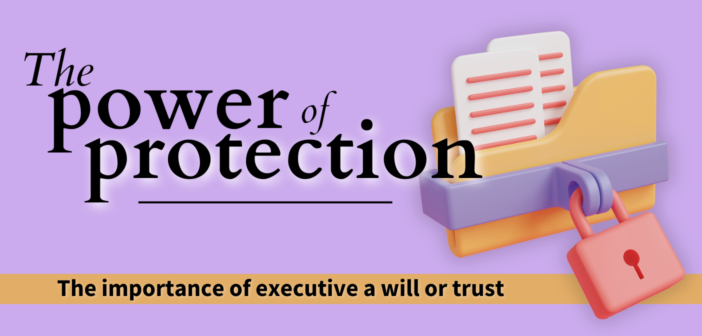The importance of executing a will or trust
If you were to pass away without a will or trust, the legal term for this is passing “intestate.” The specific outcomes can vary based on your situation, but the repercussions and burden you leave with your family can be drastic.
Consider a call DPA Attorneys at Law received a few weeks ago from a client for whom the firm had previously drafted estate planning documents. He asked for assistance for his late friend’s wife. Upon speaking with her, her exhaustion – both physically and emotional – was immediately apparent. Her husband’s sudden passing while they were traveling had been a profound shock. She was overwhelmed with the responsibilities of transporting her husband, caring for her family and children, organizing a funeral, not to mention coping with her own grief.
Naturally, the first question to the client was, “How can we help?” She explained she needed access to her husband’s bank accounts to cover mounting expenses, including funeral costs. She was asked whether she could provide her husband’s will or trust document, to which she responded, “He doesn’t have one.”
Realizing this would only add to her stress, the firm offered reassurance and proceeded to ask if her husband’s assets were held by entities or solely in his name. Hoping they were in an entity’s name, which likely would facilitate bank access due to joint tax filings, she instead revealed all assets were solely in her husband’s name. This caused immediate concern because, without any estate planning documents and with no assets in her name, she had no option but to go through the probate court process.
TAKE CONTROL
The laws of intestacy, which apply when someone passes away without a will, dictate that surviving spouses are entitled to the estate (assets) of the deceased spouse. However, the probate process typically takes at least a year until a judge decides who should inherit the assets. This one-year timeline assumes no oppositions arise during the proceedings from other family members. During this time, the wife has no access to bank accounts or assets until the court resolves the matter.
By this point, the suffering in her voice was noticeable, and she began to cry. She couldn’t bear any more bad news. Without a will or trust, you effectively relinquish control of your assets and the well-being of your family to the court system. There are several significant consequences including but not limited to:
- Probate Court Deciding Asset Distribution
- Unintended Beneficiaries
- Family Disputes
- Higher Taxes and Fees
- Lack of Control
- Guardianship Issues for Children
- Loss of Asset Value
- Unintended Heirs
TOMORROW IS TOO LATE
Now that you’re aware of the consequences, will you prevent this happening to your loved ones?
You have control now. You have time now. Take the necessary steps to protect your hard-earned assets and, more importantly, ensure the future well-being of your family. You currently have the power to decide how your assets are distributed. Why entrust that decision to a judge who knows nothing about your finances or family?
You need to have a will, a trust, or both. A trust provides the flexibility required for business owners with multiple sources of income. It’s important to note a trust isn’t just about determining the beneficiaries of your assets; a comprehensive trust also should address matters such as appointing someone to make health decisions on your behalf if you’re unable to, naming a guardian for your pet, and setting conditions for your children’s inheritance, such as kids receiving assets only after graduating from college.
An experienced legal representative can help walk you through this process, often asking very detailed questions to ensure your estate documents will accurately reflect your intentions. Additionally, there are numerous tax advantages to creating a trust. Collaborating with a tax attorney or financial planner during the drafting of your trust can potentially save your beneficiaries hundreds of thousands, if not millions, of dollars in taxes through the years.
Creating a will and trust benefits you and your family. For a relatively modest investment, you safeguard assets worth millions and, more importantly, spare your family from undue stress and wasted time in the future.





